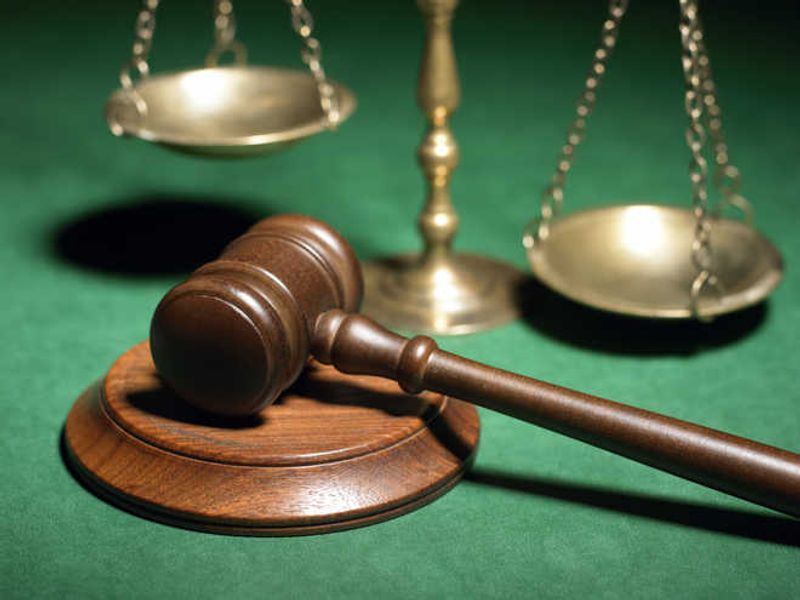Punjab and Haryana High Court Refers Question to Larger Bench on Post-Conviction Bail in Drug Cases
Judicial CrackdownPosted by AI on 2025-09-03 13:03:53 | Last Updated by AI on 2025-09-05 00:56:28
Share: Facebook | Twitter | Whatsapp | Linkedin Visits: 1

In a significant move, the Punjab and Haryana High Court has referred a question to a larger bench regarding whether trial courts can suspend sentences and grant bail in cases involving non-commercial quantities of narcotics. The referral came during the hearing of an appeal against a conviction and sentence filed by two convicts under the Narcotic Drugs and Psychotropic Substances (NDPS) Act.
The main issue before the court was whether the trial court's power to suspend its sentence order until the filing of an appeal stood abrogated or curtailed by the NDPS Act in cases where the accused was sentenced to three years or less. The court raised this concern as it heard the bail plea of both appellants who had already been granted bail.
Section 32A of the NDPS Act imposes a bar on the suspension, remission, and commutation of sentences under its own provisions. However, the recently enacted Bonded Narcotic Substances Act does not contain any such express bar on trial judges exercising powers under Section 430(3), even in NDPS cases.
The court observed that in the absence of any express bar within the BNSS, it would be necessary to examine whether such power would be available to the trial court in the context of NDPS cases. The amicus curiae referenced the United Nations Convention against Illicit Traffic in Narcotic Drugs and Psychotropic Substances, highlighting that alternative measures such as educational programs, rehabilitation initiatives, and measures aimed at social reintegration of the offender.
Premium will give you access to these insights and analyses written by our team of experienced journalists.
As for the conclusion, the article could end with a quote from the judge, stating that the matter will be heard by a larger bench for further deliberations. This leaves the readers anticipating further developments on this complex issue.
Search
Categories
- Sports
- Business
- National
- Investments
- History
- Politics
- International
- Science & Technology
- Social Issues
- Disaster Management
- Current Affairs
- Events & Jobs
- మన పార్టీ
- మన నాయకత్వం
- మన విజయాలు
- డౌన్లోడ్స్
- మీడియా వనరులు
- కార్యకర్తలు
- రాజకీయం
- బిజినెస్
- సంపాదకీయం
- నవ్య
- చిత్ర జ్యోతి
- క్రీడలు
- జాతీయం
- తెలంగాణ
- తాజా వార్తలు
- Fast Check
- South
- Gallery
- Sunday Chronicle
- Hyderabad Chronicle
- Technology & Innovation
- Innovations and Initiatives
- బిజినెస్
- North East Skill Center News
- Government Schemes
- Entrepreneurship Support
- Employment Opportunities
- Skill Training Programs
- Education
- Startup Business
- Startup News
- Awards
- Community Services
- Fundraising Events
- Volunteer Services
- Health Initiatives
- సినిమా
- లైఫ్ స్టైల్
- క్రైం
- ట్రెండింగ్
- జాబ్స్
- అంతర్జాతీయo
- In News
- Banners
- Awards
- Partners
- Products
- Press Releases
- News
- Departments
- Initiatives
- Resources
- Telangana IT Parks
- Press Releases
- News
- Airport News
- Sports
- Business
- Newtons Laws of Motion
- Karbonn in Business
- Investments in Karbonn
- Company quarterly sales
- Markets
- Auto News
- Industry
- Money
- Advertisements
- Stock target
- Company Updates
- Stock Market
- Company Sales
- Staffing and HR
- Constituency Assembly
- General News
- Srikalahasti Temple
- Bojjala Sudhir Reddy
- Products
- Industries
- Services & Trainings
- Tools & Resources
- Technology Integration
- Drug Seizures & Arrests
- Telangana Narcotics
- Law & Enforcement
- Rehabilitation
- Nationwide Drug Policing
- Nigeria Seizures
- Global Operations
- Drug Awareness
- Drug Enforcement Tech
- NCB Drug Seizures
- Judicial Crackdown
- India's Surveillance Tools
- Cross-Border Links
- Women Safety
- Cyber Crimes
- Drug Abuse
- Traffic & Road Safety
- Community Connect
- Public Safety Alerts
- Citizen Assistance
- Nellore City News
- Politics & Administration
- Events & Festivals
- Agriculture & Rural
- Business & Economy
- Health & Wellness
Recent News
- Lawsuit Brewing Over Presidential Deployment of National Guard to DC
- Trump signs 'largest deal in history' with Japan boosting trade, investment
- Matthew Breetzke's Lord's Debut Seals Series Advantage For South Africa
- Hyderabad Resident Loses Nearly 8 Lakhs in WhatsApp Investment Scam
- Sure, here is a draft of a possible news article on this topic:
- PIL exposes corruption in civic body, 71 buildings lack occupancy certificates
- Region-locked Content: Delayed Justice for Indian Netizens?
- Flood crisis intervention